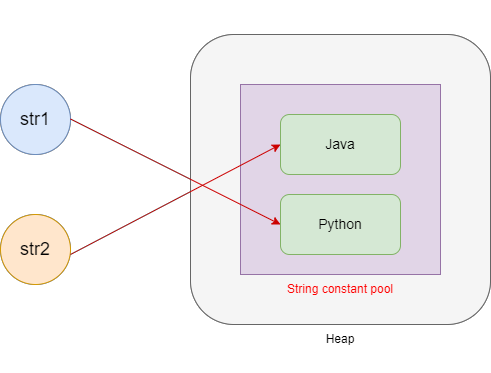Why Are Strings Immutable in Java? Understanding the Core Principles
Why Are Strings Immutable in Java? Understanding the Core Principles
Blog Article
Unalterable Strings: A Trick Part in Ensuring Data Consistency and Integrity
In the realm of data administration, the relevance of immutable strings can not be overstated. These imperishable series of personalities play a pivotal function in promoting the integrity and precision of info within systems. By keeping a state of immutability, information uniformity is ensured, fostering a foundation of integrity upon which essential processes depend. The principle of immutable strings goes beyond mere formality; it is a linchpin in the complicated internet of data governance. As we check out the advantages, application techniques, and sensible applications of unalterable strings, a clearer photo arises of their indispensable nature in securing the electronic landscape.
The Principle of Unalterable Strings
Immutable strings, an essential concept in programming, refer to strings that can not be modified when they are created. Basically, as soon as a string worth is assigned, any procedure that appears to modify the string in fact develops a new string. This immutability guarantees data uniformity and integrity in applications, as it protects against unforeseen changes to the initial information.
Benefits in Information Consistency

Data uniformity is essential in various facets of software program growth, consisting of data source management, multi-threaded environments, and dispersed systems (Why are strings immutable in Java?). Immutable strings add substantially to accomplishing this consistency by protecting against information corruption because of simultaneous access. In circumstances where several procedures or strings engage with the very same data simultaneously, unalterable strings function as a secure versus race conditions and synchronization concerns
Furthermore, the immutability of strings streamlines debugging and testing processes. With immutable strings, designers can trust that once a string is set, it will certainly stay the same, making it much easier to trace the resource of errors and making certain that examination cases create regular results. This reliability in information handling ultimately causes more robust and stable applications.

Applying Immutable Strings
Ensuring the immutability of strings requires a thoughtful technique to their execution in software program advancement. When a string object is developed, one crucial technique is to create string classes in a method that avoids adjustments. By making strings unalterable, developers can boost information uniformity and reliability in their applications.
To apply immutable strings successfully, designers need to favor creating brand-new string items as opposed to customizing existing ones. This practice guarantees that as soon as a string is assigned a worth, it can not be transformed. Additionally, any type of operation that shows up to modify the string needs to create a brand-new string with the preferred adjustments as opposed to altering the initial.
Additionally, using unalterable strings can streamline concurrency administration in multi-threaded environments. Because immutable strings can not be transformed after creation, they can be safely shared amongst several threads without the danger of information corruption.
Duty in Dependability Guarantee
In software advancement, the use of unalterable strings plays an important duty in ensuring the reliability of information procedures. Unalterable strings, once developed, can not be customized, making certain that the data they represent remains consistent throughout the application's execution. This immutability residential or commercial property offers a degree of assurance that the data being processed will not be accidentally transformed, leading to unexpected end results or errors in the system.
By integrating unalterable strings into software read review program design, designers can improve the integrity of their applications by reducing the risks connected with mutable data - Why are strings immutable in Java?. Unalterable strings help in avoiding data corruption or unintended adjustments, which can be especially important when taking care of delicate details or when information stability is critical
Moreover, the usage of immutable strings simplifies concurrent processing, as multiple threads can securely access and share string information without the threat of one thread altering the material while another reads it. This facet contributes significantly to the total integrity of the software application system, making certain regular and predictable habits in information dealing with operations.
Applications and System Assimilation
The smooth assimilation of unalterable strings into numerous applications and systems is critical for making certain durable data consistency and reliability throughout varied technical atmospheres - Why are strings immutable in Java?. Unalterable strings play a vital duty in improving the honesty of information exchanges and interactions within facility software application communities. By including immutable strings right into applications, programmers can minimize the threats connected with information meddling, unapproved alterations, and unintentional changes, therefore fortifying the total safety and security posture of the system
Immutable strings can improve interoperability between inconsonant systems by providing a standard layout for information depiction, enabling more effective information handling and exchange methods throughout interconnected systems. By taking on unalterable strings in applications and system combination processes, organizations can fortify their information framework and maintain the reliability and uniformity of their info assets.
Conclusion
Finally, unalterable strings play an essential duty in preserving data uniformity and reliability in different applications and system integrations. By making sure that strings can not be transformed when created, the honesty of data is check out this site protected, decreasing the risk of mistakes and incongruities. Implementing immutable strings can substantially enhance the reliability of systems, inevitably resulting in even more exact and reliable data processing.

Report this page